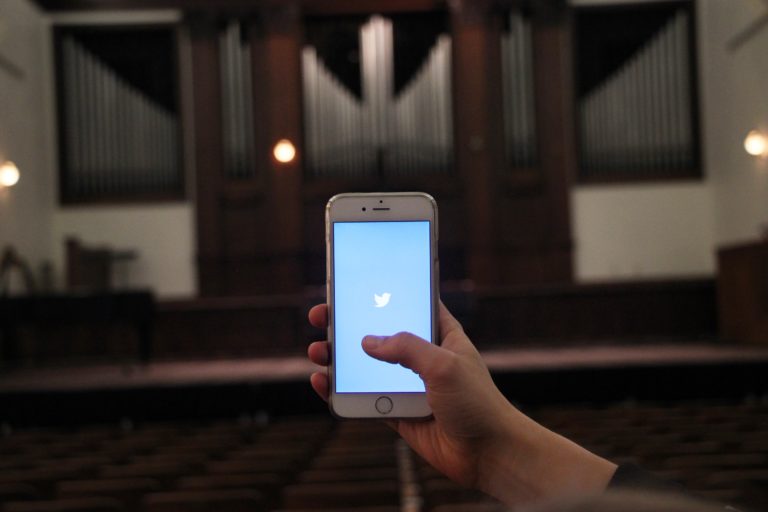by Elijah Lutz, Opinion Editor
It is time to stop tweeting about chapel. Let me clarify this: I’m not saying it is time to stop tweeting in chapel; let’s face it, people are going to text or tweet during chapel whether or not it gives them one of the infamous third-absences. Rather, I am arguing that discussion about our tri-weekly gathering as a Christian body of students shouldn’t take place on a platform that not only restricts our arguments to a character limit but also isn’t face-to-face.
Social discussions shouldn’t take place over social media in the first place. It is a lost art, in my opinion, to have face-to-face discussions with your peers about topics ranging from theology to politics. While many chide that both are part of the dreaded “three things friends never discuss,” along with the Great Pumpkin, these are exactly the conversations we need to be having with one another. Chapel is no exception.
There has been an increased polarization this year on the overall quality of chapel services. It doesn’t take any serious degree of investigative journalism to figure this out; one needs only to hide their phone from their omnipresent chapel checker and open Twitter. Comments can range anywhere from “This speaker is great!” to “Where do I go to complain about chapels this year?” If you happen to agree with the tweet, you can just like it and move on. If you disagree, you can choose to respond, or also move on.
The importance of chapel is being overlooked by its tweets. The purpose of gathering together as a community is so that we can grow together in our faith and religion. We all flaunt that communal growth when we elect to take our commentary to the realm of the Internet, as opposed to having a frank, and sometimes uncomfortable, conversation with our classmates on why we liked or disliked the message of the day. We use our phones to escape the confrontations and discourse, just like we have used them before to escape the realities of life.
How can we be expected to have full conversations and debates in 280 characters? How can we tell what a person feels or means when we cannot hear the tone of their voice, or the inflection they use on certain words? Why do we leave these conversations for a medium where the presence or absence of a certain punctuation mark could change the entire tone of a conversation?
I can’t say too much; I am guilty of all of this as well. That doesn’t change the ultimate fact that we, as the student body, must change our behaviors when it comes to chapel tweeting.
Participate in a talkback session, attend an event sponsored by the Spiritual Life Board or Campus Ministries or even just talk about chapel with your friend group over your lunch in the caf.
We cannot continue to make the same mistakes we have been making. The issue of Asbury’s internal division will only be made worse unless we elect to put our phones away, listen to the speaker and then keep those phones away long enough to talk about it with someone who has a different opinion about the message than you do. Not every chapel will be perfect, nor will every speaker move mountains with the words they say. But until we can have these conversations face-to-face again, Twitter will continue to tear apart an aspect of what makes us Asbury.
Photo by Rebecca Hurshman




